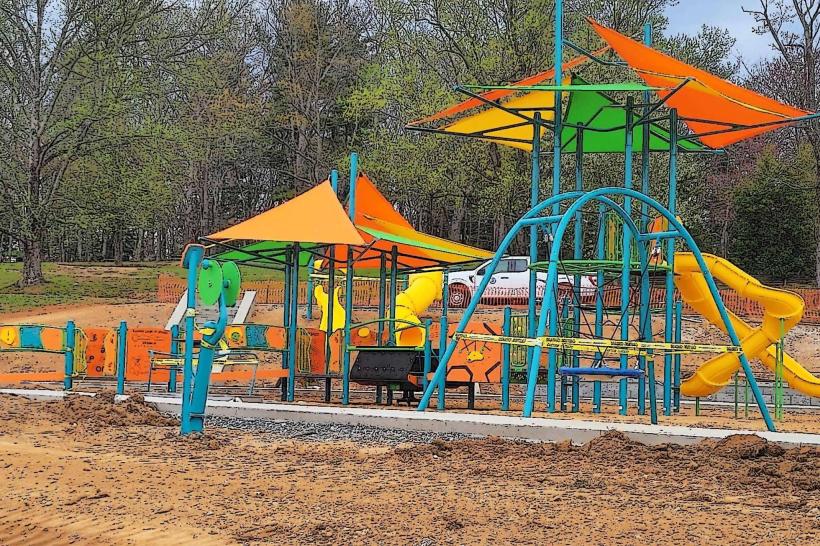Information
Landmark: Blue Ridge Community College Botanical GardensCity: Hendersonville
Country: USA North Carolina
Continent: North America
Blue Ridge Community College Botanical Gardens, Hendersonville, USA North Carolina, North America
The Blue Ridge Community College Botanical Gardens are located in Hendersonville, North Carolina. This site features a collection of themed gardens designed for educational and horticultural purposes.
Visual Characteristics
The gardens encompass approximately 10 acres. They are characterized by diverse plant collections arranged in distinct thematic areas, including a native plant section, a rose garden, and a perennial border. Pathways are primarily gravel or mulched earth. Structures include a small greenhouse and informational signage.
Location & Access Logistics
The gardens are situated on the campus of Blue Ridge Community College at 180 West Campus Drive, Hendersonville, NC 28792. They are approximately 3 miles west of downtown Hendersonville. Access is via US-64 West. Ample free parking is available in college lots adjacent to the gardens. Public transport options are limited; Hendersonville's public bus service does not directly serve the college campus.
Historical & Ecological Origin
The gardens were established in the late 1990s as an extension of the college's horticulture program. Their purpose is to provide a living laboratory for students and a resource for the community. The site is situated within the Blue Ridge Mountains ecoregion, supporting a variety of temperate plant species.
Key Highlights & Activities
Visitors can observe seasonal plant displays. Self-guided walks are permitted throughout the garden areas. Educational signage provides information on plant identification and cultivation. The rose garden is a focal point during its blooming season.
Infrastructure & Amenities
Restrooms are available within the adjacent college buildings during operating hours. Limited shaded areas are provided by mature trees. Cell phone signal (4G/5G) is generally available. No on-site food vendors are present; nearest options are located in Hendersonville.
Best Time to Visit
For peak floral display, visit from April through October. The rose garden is most active from May to September. Mid-morning offers optimal lighting for photography before the midday sun becomes intense.
Facts & Legends
A specific "secret" tip for visitors is to look for the small, often overlooked, herb garden located behind the main greenhouse, which contains a variety of culinary and medicinal plants.
Nearby Landmarks
- 0.5km East: Blue Ridge Community College Main Campus Buildings
- 3km East: Downtown Hendersonville (Shops, Restaurants)
- 4km Southeast: Hendersonville Historic District
- 5km Northwest: Pisgah National Forest (Access points)









